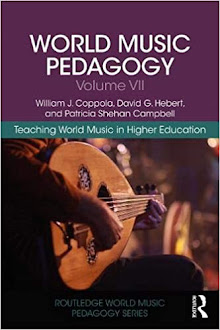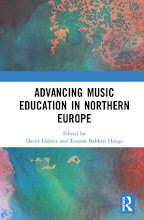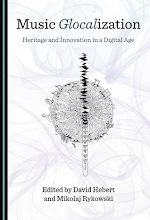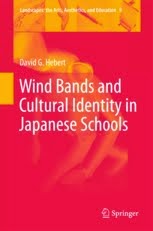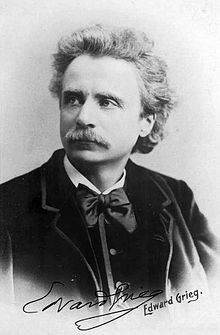Prof. J. Lawrence
Witzleben, current editor of Ethnomusicology, writes the
following in his review of Theory and Method in Historical Ethnomusicology
in the international Society for Ethnomusicology’s journal:
“For
ethnomusicologists who are newly venturing into historical territory, the case
studies are all accessible, thoughtful, and stimulating. The coauthored chapters
are densely constructed and sometimes challenging, but they reward careful
reading with a wealth of information and insight. Among other things, they
represent a theory and method for historical ethnomusicology.” - Prof. J. Lawrence Witzleben
in Ethnomusicology
Click HERE
to access the review.
In NOTES: Quarterly Journal of the Music
Library Association, Justin Hunter describes Theory and Method in Historical
Ethnomusicology as ‘a valuable resource for any music scholar
interested in the past and its relationship with the present. . . . a jaunty
and robust contribution to how music studies could be enhanced by a sensitivity
to historical pasts. McCollum and Hebert’s lengthy discussions of the cognitive
dissonance of cultural memory are particularly poignant for researchers working
to connect oral histories with written sources.’
In PULS:
Journal of Ethnomusicology and Ethnochoreology, Mattias Lundberg writes in Swedish about the book Theory and Method in Historical
Ethnomusicology. English translation of key points: “It
is a very intriguing study with great relevance to all cases where a
historiography is apparently tunnel-like) . . . The question of what theory and meta theory is, and
should be, seems to be precarious in music research. In addition to various
debates and positions, Timothy Rice could, for example, launch an article 2010
(in the Yearbook for Traditional Music 42) with the claim that 'theory
[...] has yet to take root in our disciplinary imagination.' From such a
point of view, McCollum and Hebert's historical philosophical chapter is a
highly ambitious and fully-reflected contribution."
In volume 61 of Japanese musicology journal, Ongakugaku, the book Theory and Method in Historical
Ethnomusicology is described by Matt Gillan as “summarizing the ways
that historical issues have been addressed in previous ethnomusicological
studies, outlining a number of theoretical and practical concepts that are
useful in the field, and providing case studies demonstrating how historical ethnomusicology
is being used in current research.” Gillan characterizes the chapters “co-written
by McCollum and Hebert” as follows: “attempting to outline future directions
for the field of study. These four theoretical and methodological chapters,
accounting for some 170 pages (nearly half of the
book), are thoughtful and well balanced in their
combination of traditional and more cutting-edge approaches, and make an
excellent introduction to the subject.”
Also, here is a
link to a very positive review of our book Theory and Method in Historical
Ethnomusicology in the Azerbaijani musicology journal Konservatoriya:
English translation of key points from Fattah Khaligzade's review in Konservatoriya: “the first
great book on historical ethnomusicology . . . published by a new generation of
researchers, Jonathan McCollum and David Hebert . . . this sophisticated
collection of articles is regarded as valuable research from across recent
years due to its scientific novelty, thorough content, and extensive
capabilities for application . . . The editors deeply analyze the valuable
contributions of their predecessors and contemporaries, and attain a unified
direction for their colleagues’ efforts . . . an important achievement of
contemporary ethnomusicology”
WIND BANDS AND CULTURAL IDENTITY IN JAPANESE SCHOOLS
Prof. Yuto
Kitamura (University of Tokyo) cites Wind
Bands and Cultural Identity in Japanese Schools as one of five recent books
that “has presented interesting phenomena relating to Japanese education and
has generated insightful and thought-provoking discussions”. This description appears on p.2 of the book Education in Japan: A
Comprehensive Analysis of Education Reforms and Practices (Springer, 2019).
In his review in
British Journal of Music Education, ethnomusicologist
Dr. Norman Stanfield describes Wind Bands and Cultural Identity in Japanese
Schools as “a most unique and engaging monograph . . . David Hebert delved
deep under the surface of the seemingly everyday where he discovered anomalies
and cultural specifics that are unlike anything found in the West. . . Hardly a
page goes by without an ‘aha’ moment . . . His book performs the remarkable: a
call to explore new ways of doing high school band programmes differently”.
Professor Henry Johnson writes in Music Education Research that Wind
Bands and Cultural Identity in Japanese Schools is “rich in its discussion
of cultural history and social practice, and offers an abundance of fascinating
information that has been collected through extensive historical and
ethnographic research in Japan over a 13-year period.”
Renowned British conductor Tim Reynish writes "the definitive book on Japanese wind music by David Herbert was published by Springer. This detailed research into wind band training in Japan should be in every library, and his interviews with six leading wind band composers must be compulsory reading for anyone interested in Japanese music."
http://www.timreynish.com/repertoire/repertoire-by-country/japan.php#windb
Reviews of my ethnography and social history Wind Bands and Cultural Identity in Japanese Schools by renowned music education researcher Richard Colwell and Asian performance studies scholar CedarBough Saeiji are in the February 2013 issue
of Ethnomusicology Review:
Dr CedarBough Saeiji has also described the book here:
She writes, “Hebert has done an admirable
job setting down in meticulous detail how the students are learning-- in large
part they learn from their peers. When I consider the performances of middle school wind bands in Japan . . . it's sort of mind-blowing how well they play.”
Wind Bands
and Cultural Identity in Japanese Schools is described by Peter Gouzouasis
and Alan Henderson in a recent issue of Music Education Research as "a comprehensive, stunning account of wind bands in Japan", providing "the most comprehensive information about concert (wind) band participation in any country" (Music Education Research, volume 14, issue 4 (2012), pp.479-498).
In Japan’s widely distributed Band
Journal (2012), accomplished conductor and music technology expert Tatsutoshi Abe writes that Wind Bands and Cultural Identity in Japanese Schools offers broad scholarly
description and unique insights from a non-Japanese researcher with deep
interests in Japan, and urges readers to press for publication of the full book in Japanese
translation.
According to a
review in Social Science Japan Journal
by sociologist Hiroshi Nishijima (Professor, Tokyo Metropolitan University), “. . . Hebert’s study should be highly lauded. Seeing extracurricular club activities in the light of Japanese studies is a perspective that I intend to employ in my own research in the future. Moreover, at a time when Japanese schools, clubs, arts, and sports are going through a great number of changes, this publication can serve as an important reference and inform the decisions of those attempting to advance changes to the educational system.”
"[Wind Bands and Cultural Identity in Japanese Schools] . . . provides an interesting insight into the successful pedagogical techniques and
methods required to cultivate collective notions of identity and ultimately
musical achievement. This book is a valuable resource to those with
interests in a number of musical and academic fields, in particular music
education, ethnomusicology and band studies. Throughout the book the author
successfully connects these different strands and produces an accurate and
engaging picture . . ." – Richard Jones, PhD, The World of Music.
Dr.
Andrew Goodrich (Boston University) wrote the following:“David
Hebert introduces readers to Japanese wind band culture with his book Wind
Bands and Cultural Identity in Japanese Schools. … Written in conversational
prose suited for ethnography, Hebert accomplishes a rare feat—a book that is
accessible to both scholars and music teacher practitioners. … Hebert
successfully weaves the inner workings of a successful Japanese wind band with
the social history of Japanese bands into an interesting, intricate tapestry.”
(Andrew Goodrich,
Journal of Historical Research in Music Education, Vol. XXXVI
(1), October, 2014)
“Hebert’s study has
been referenced by several authors touching upon national music competitions
and is a comprehensive source on the modern band movement in Japan.” – Danh Pham,
Tokyo
Kosei Wind Orchestra: An Historical Perspective of the Organization (doctoral
dissertation, 2011).
Quotation in program for “Notes from Japan,” concert
conducted by
Eugene Corporon:
Ethnomusicologist Norman Stanfield, “Ethnomusicology in the Band Room”:
PATRIOTISM AND NATIONALISM IN MUSIC EDUCATION
Preeminent cognitive psychologist of music John Sloboda describes the book Patriotism and Nationalism in Music Education in the journal International Journal of Education and the Arts (2012) as “a brave first attempt to bring together information and arguments
relevant to an understanding of how patriotism and nationalism intersect with
music education. As such, it both stands as a 'must read' resource for anyone
interested in this topic, and also as an indication of how little we know in
depth about the effects of patriotism on music teachers and the young people
they teach. There are many empirical studies that are begging to be done, and I
hope this book stimulates some researchers to undertake them.”
In the journal History of Education, Professor Stephen G. Parker describes Patriotism and Nationalism in Music Education as “a fascinating volume in focus and detail. It poses some important and perennial questions for all educators, not just music educators: what sentiments, attitudes and dispositions should schools foster, and how may they be appropriately invoked, in discourse, song and music? Given that in the English context the provision of collective worship in schools remains a statutory obligation, and that mainstays of it are listening to and/or participating in the singing of some form of sacred music, one is left wondering about the effects. Moreover, the emotional dimension of schooling is often overlooked, and this volume reminds us to consider how music contributes to the creation of an emotional climate in schools, and its function in fostering the formation of particular loyalties, identities and dispositions.”
Professor Jonathan Stock, ethnomusicologist, wrote the following in the
British Journal of Music Education: ". . . appealing to a wide range of readers, interweaving broader historical overviews, and engaged, personal accounts . . .
Patriotism and Nationalism in Music Education provides a stimulating series of case studies that trace music education's ethical, unethical and unexpected consequences"
In Musica Docta, ethnomusicologist Professor Giovanni
Giuriati (University of Rome) writes “Si tratta, in definitiva, di
un volume molto ricco e denso di contenuti che ha il grande merito di far
emergere una questione, quella del patriottismo e del nazionalismo spesso
sottaciuta in una prospettiva di didattica musicale.” ([
Patriotism and Nationalism in Music Education] is, ultimately, a
book of very rich and dense content that has the great value of bringing out an
issue, that of patriotism and nationalism, which has been too little discussed
from the perspective of music education.)
April Stephens Sholty wrote in the
Journal of Historical Research in Music Education that she found "many of the authors' personal narratives and the historical background of the anthems to be especially thought-provoking.
Patriotism and Nationalism in Music Education would be an excellent addition to graduate level courses on sociology and music." (JHRME, XXXVI/2, 2015, p.161)
J. Paul Louth writes the following in his review of
Patriotism and Nationalism in Music Education: “This timely book offers an insightful array of international perspectives on a subject that badly calls out for scrutiny. . . . Of particular value is the use by a number of the authors of theoretical categories or constructs of patriotism to analyze historical or qualitative data.” –
Canadian Association of Music Libraries Review.
Music education author Veronica Jamset writes the following about Patriotism and Nationalism in Music Education within the music library journal Fontes Artis Musicae: “A wide
range of nations, at least one from almost every continent of the world, is
discussed . . . The editors draw these diverse practices together in their own
conclusion, calling for themes of reconciliation and mutual understanding, not
nationalistic propaganda, and for teachers to be required to reflect ethically
about what they are asked to do, and about why and how they do it . . . potentially
of general interest to a wide range of readers but its immediate usefulness may
be restricted academically to members of departments which have a significant
education strand. Rather than a rounded and systematic study of music education
per se, it presents a number of recurring threads that pose challenging
questions about the role of music teachers in propagating and inculcating patriotic
sentiments. Bibliographical referencing is generous. The book is a rich
resource, its extensive sources offering many excellent starting-points for
research, particularly for music educators who have not previously considered
this aspect of how they train teachers, as well as scholars engaged in
researching comparative and political educational issues.”
According to
David Ashworth in his recently published review in the UK's
Music Teacher Magazine, our book
Patriotism and Nationalism in Music Education is "useful for the teacher who wants to explore global issues in the classroom", for it provides "a rich source of information about aspects of music education around the world," and "There is much for music teachers to think about here -- recommended."
https://www.box.com/s/2nsagerekseqh6l6oc9o
OTHER BOOKS:
In his review of the book Sociology
and Music Education (ed. Ruth Wright), music education scholar Patrick
Schmidt writes the following in Visions of Research in Music Education (2012):
“Sociology and Music Education contains several other compelling
chapters. David Hebert outlines the role of ethnicity as a sociological concept
and its role as a construct within various areas of musical inquiry. Hebert’s
chapter provides an outstanding review of the literature and guides the reader
toward a sociological understanding of one of the key elements in the formation
of multicultural discourses in the field.”
Tami J.
Draves writes the following about the book Sociology and Music Education in her
review published in Journal of Historical Research in Music Education: “In
considering the advantaged and disadvantaged in music education, David Hebert
analyzes ethnicity and music education from sociological, musicological, and
music education perspectives in chapter 7 by considering which music is taught
and to whom. He concludes his chapter with suggestions for ‘empowering music
teachers to respond appropriately to the complexity of ethnic differences’” (p.
109).
In her
review of the book Sociology and Music Education, music education
scholar Sharon G. Davis writes the following in Music Education
Research (2013): “David G. Hebert’s chapter on Ethnicity strikes at the heart
of many of the challenges of multicultural teaching in music education and
highlights the central role that ethnic identity plays in musical meaning and
engagement.”
In his review of the book De-Canonizing
Music History (ed. Vesa Kurkela & Lauri Vakeva), ethnomusicologist Travis
Stimeling writes the following:
“Hebert contends that music education textbooks have adopted a
Eurocentric model of wind band history, despite the existence of pre-European
wind traditions in Japan, the Maori Ratana brass band practices in New Zealand,
and the development of jazz in the United States. Arguing that “hybrid music[s]
. . . [are] sites of musical innovation and . . . potential wellsprings of new
musical traditions” (p. 178), Hebert suggests that such ensembles deserve more
careful treatment in music history and music education textbooks. Moreover, he
challenges music education scholars to deploy ethnography and oral history in
order to frame policy and curriculum within “a richer and more accurate depiction
of lived reality” (p. 179), a
portrait that would naturally require greater attention to the contributions
of women and hybrid musical genres to local, regional, and national music
education.”
In her review of the book Music
Education for Changing Times: Guiding Visions for Practice (ed. Thomas
Regelski & J. Terry Gates), music education scholar Jeananne Nichols writes
the following:
“Herbert believes music education will become more relevant and
effective when it attends more completely to “creative agency via technology
and musical hybridity (p. 39).” Music learned in school should have some
connection to the music the student engages with outside of school and that
musicianship should be understood as an “embodied practice situated in
sociocultural contexts (p. 48).”
Reviewing the expanded third edition of Multicultural Perspectives in Music Education (ed. William M. Anderson & Patricia Shehan Campbell), music education historian Marie McCarthy notes the "new chapters on jazz and rock and world beat," while renowned jazz educator Willie L. Hill also writes that ''new chapters on jazz/rock and world-beat are all brimming with inspiring material, bringing these rich traditions to life. As students experience the rhythms, sounds, and stories of the global community, they will learn how these musics have influenced both American culture and world cultures. Students may develop a deeper understanding of their own heritage, and see how they fit into the global community. This is especially important for young people who may be alienated due to ethnic or cultural differences as well as students who may feel lost amid the growing population in today's urban areas in our technological age."
It is very encouraging to see that reviewers find some of my recent writings to be useful, and I am quite thankful for their endorsement. Nowadays, I am working on other books, and learning from previous experience, so hopefully the best is yet to come. I have many detailed ideas for future projects and plans to publish ten books by 2023.










